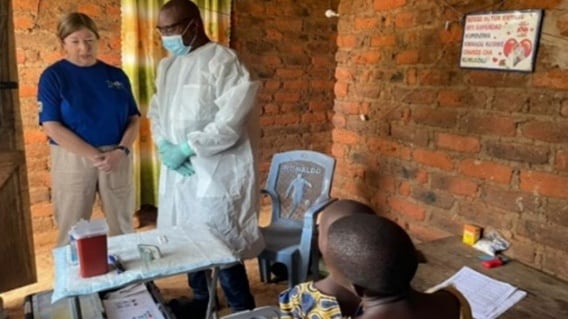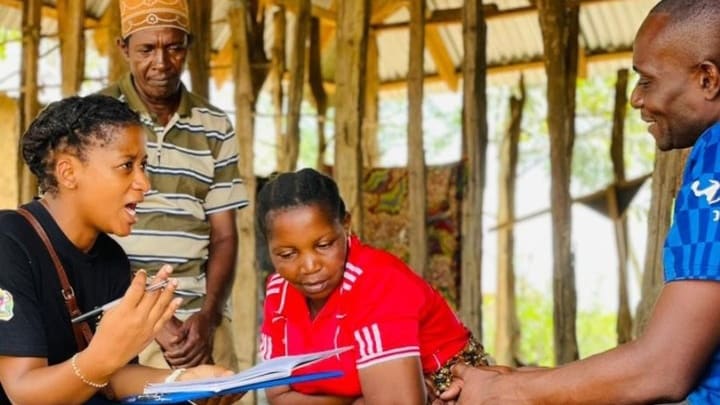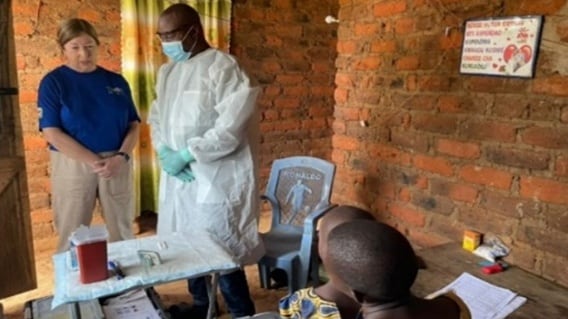At a glance
In 2023, CDC Tanzania and multiple local partners conducted a nationwide Population-based HIV Impact Assessment (PHIA). This national survey plays a crucial role in measuring Tanzania’s progress in controlling the HIV epidemic.

Tanzania HIV impact survey
CDC works with partners around the world to measure progress towards controlling the HIV epidemic in countries supported by the U.S. President's Emergency Plan for AIDS Relief (PEPFAR). One important tool used to measure the impact of HIV treatment and prevention programs in PEPFAR-supported countries is the Population-based HIV Impact Assessments (PHIAs) surveys.
In Tanzania, the PHIA survey is known as the Tanzania HIV Impact Survey (THIS). This national survey plays a crucial role in measuring Tanzania's progress in controlling the HIV epidemic. The main goal of THIS is to estimate the number of people living with HIV, the annual number of new infections, and the proportion of individuals who are aware of their HIV status. It also measures the number of people who are receiving effective HIV treatment and who maintain a low or undetectable viral load.
HIV progress in Tanzania
- 88% were aware of their status
- 86% were taking life-saving HIV antiretroviral therapy
- 83% had a HIV viral load that is considered suppressed, meaning it is under 1,000 copies/mL
These estimates are generated using a model which incorporates data from the first THIS survey and collected data from the national HIV program.

Survey launch
CDC Tanzania worked closely with multiple local partners in providing technical assistance to conduct THIS 2022-2023. Implementing partners included:
- The Government of Tanzania through the Tanzania Commission for AIDS
- The Zanzibar AIDS Commission
- The Ministries of Health of mainland Tanzania and Zanzibar
- The National Bureau of Statistics
- The Office of Chief Government in Zanzibar
- ICAP at Columbia University
Over 1,130 field staff trained as data collectors -in HIV testing services and phlebotomy- deployed throughout all 31 regions of Tanzania to conduct the survey. The survey included a nationally representative sample of approximately 20,000 randomly selected households and approximately 40,000 people aged 15 years and older.
Despite geographical challenges, this complex fieldwork was completed at remarkable speed. The dedicated teams finalized THIS data collection by March 2023. In only 4 months, the teams successfully interviewed nearly 36,000 people and conducting over 33,600 HIV tests.

Monitoring field data collection
In February 2023, CDC Tanzania's Alison Johnson joined ICAP and the National Bureau of Statistics for a monitoring visit to Mwandi village, Kilosa.
The team observed data collection processes and visited the satellite laboratory which receives and processes blood samples collected by field teams each day. They also visited the satellite laboratory in Morogoro to observe how specimens were prepared for additional onsite testing and packed for shipping to the survey main laboratory.
Despite complex challenges the staff faced in reaching the survey sites, the experience highlighted the dedication and efficiency of the survey team in collecting valuable data.
Impact and future
The team will release a national report. Survey datasets will be made accessible to third party investigators using established data sharing agreements, processes, and procedures. The final THIS 2022-2023 report and materials will be disseminated to stakeholders and the public in Spring 2024.
These survey results will provide Tanzania's government leaders, medical professionals, civil society organizations, and researchers with a valuable guide to decision-making on HIV policy, programs, and funding, leading to better health, stronger families, and a more prosperous nation.
